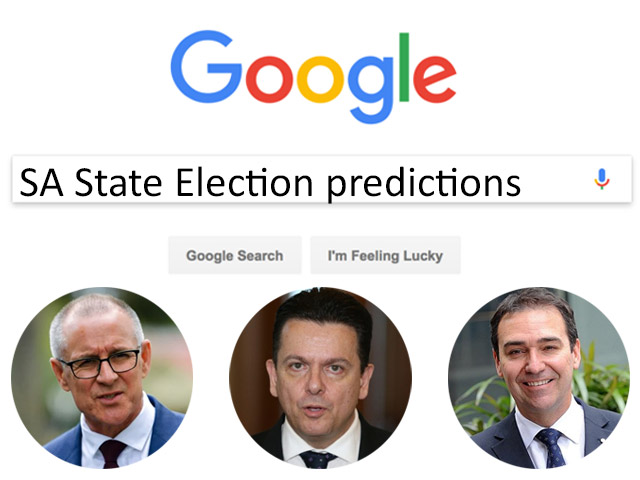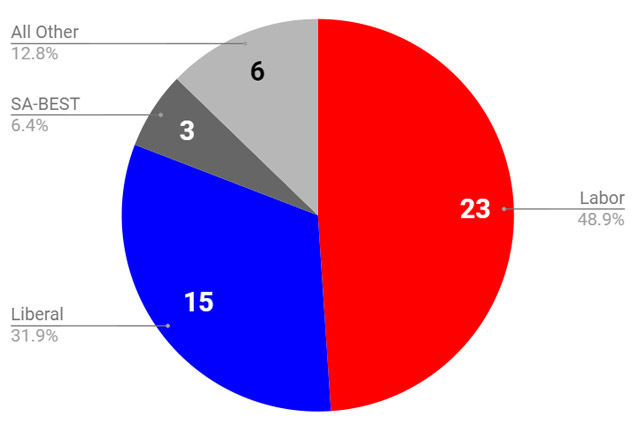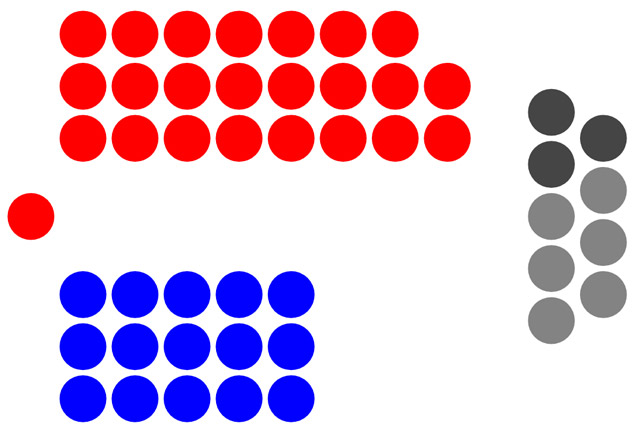During the heated 2016 U.S. election as the presidential candidates drew their campaigns to a close every news reporter and blogger was looking for ways to predict the winner in advance.
But even with a huge amount of polling and survey data at their fingertips, most of the mainstream media failed to accurately predict the results of the 2016 U.S. election. Perhaps it was just a case of looking at the wrong kinds of data.

As Seth Stephens-Davidowitz established convincingly in his 2017 book, Everybody Lies, it turns out that what people search for online is often a much more accurate reflection of what they think and want as opposed to what they say they think and want.
Search data can reveal how many voters actively search for information about political parties and candidates and even what they specifically want to know about them.
Ahead of the 2018 South Australian state election, Kwasi Studios’ search experts examine what SA’s voters are searching for – and what that may mean for election results.
Our Methodology
For our study our first step was to list every candidate by party and electorate. Next we looked at how many times each candidate was searched for on Google over a four week period ahead of the election.
Using Google’s Keyword Planner we can get an accurate figure for the number of searches. Using popularity in search to forecast popularity of future votes, we can see which candidate from which party is likely to win a seat in each electorate. Basically, more searches predict more votes.
The Results Are In
Based on the Google search data, we’re going full Nostradamus to predict:
Labor will secure 23 of 47 seats – one short of a majority, compared to 15 seats the Liberals will grab. Searches for Labor and Liberal have been rising consistently in South Australia since December of 2017. Nick Xenophon’s party SA-Best released a video that pushed their search interest well above both major parties in February. Content is still king.

SA-BEST looks set to land 3 seats, but with Labor already securing enough support for an effective majority, Nick Xenophon’s party won’t hold the balance of power. The 2018 election will prove that it takes more than theme songs and politicians rapping to heat up the search bar. More links and visibility might have an impact as the popularity of their content grows, but it seems to be gaining attention for all the wrong reasons. How will that translate at the polls?
Looking once again at our results in a good-old-fashioned Westminster seating plan, you get:

Only time will tell how the election will play out but if the Google data is to be believed, we may need to help the Liberal Party out with migrating their website to 20yearsoflabor.com.au.

Comments (0)